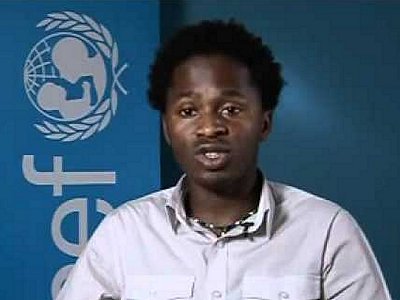
CHILDREN FIGHTING ADULT WARS
What is happening to Congo’s thousands of child soldiers? The story of Ishmael Beah gives us a clue.
Ever since Joseph Conrad wrote his marvellous novel, it has been difficult to talk about the Congo without descending into cliché over how dark its heart is. And yet there is much truth in this. Writing in Not Quite World’s End (Macmillan, 2007), veteran BBC correspondent John Simpson describes it as the most frightening place he has been to on earth.
The rape of the Congo began under the tyrannical reign of Belgian King Leopold II late in the nineteenth century, when rubber and ivory were systematically extracted using brutal forms of slave labour. After independence in 1965 the Congo was then callously robbed by the kleptomaniac Mobutu Sese Seko. The country is wonderfully rich in minerals – gold, copper, tin, diamonds and coltan. The latter is a rare mineral component essential for mobile phones and laptop computers. The Congo’s good fortune in being mineral rich is in reality its curse, making this unstable state a battleground for competing ethnic groups supported by surrounding nations.
The recent escalation in violence may be related to lucrative deals struck between President Joseph Kabila and the Chinese government (yet more evidence of the Asian power’s growing influence on the continent) and the desire for Tutsi in the eastern Congo to get their share of the wealth.
After the 1994 Rwandan genocide, Hutu militias took refuge in eastern Congo to avoid reprisals after their massacre of Rwandan Tutsi and the area has been racked with suffering since, as the same ethnic tensions are manifest. Behind the vicious ethnic rivalry between Hutu and Tutsi lies the strategic national interest of the Hutu supporting Congolese government, keen to extract the minerals in eastern Congo to make good on the contracts with China, and the Tutsi supporting Rwandan government of Paul Kagame, which is a major exporter of the coltan smuggled across the border by Tutsi.
And many of these battles are fought by children.
Two years ago the Congolese government launched a programme to reintegrate child soldiers into civilian life. A major report by Amnesty International (see their press release: www.amnesty.org/en/library/info/AFR62/019/2006/en) showed recently that this programme is failing. At least 11,000 children are either still with armed groups or unaccounted and this will grow worse with the renewal of violence. The recruitment of children under 18 for armed conflict is prohibited under international law (under 15 it is designated a war crime), yet it is estimated that children make up to 40% of some forces in the Congo and that girls make up about 40% of these children. Meanwhile less than three in ten Congolese children complete their primary education.
It is hard to imagine greater cruelty than that inflicted on children by corrupt governments and militias which coerce them to hate, to fight and to kill in the pursuit of greedy adult gain. Jesus said: ‘if anyone causes one of these little ones who believe in me to sin, it would be better for him to be thrown into the sea with a large millstone tied around his neck’ (Mark 9:42). This is an uncompromisingly severe judgment, but there is little fear of God in those who systematically abuse children this way.
Some time ago I read A Long Way Gone (Harper Perennial, 2007) by former child soldier turned UN ambassador Ishmael Beah, about his experiences in Sierra Leone. I do not think I have read a more remarkable autobiography in my life and I wholly recommend it. It is a deeply disturbing story and yet his own reintegration into civilian society, at first painful, is made possible by the love and care of devoted adult professionals. Whenever I see publicity which describes someone’s story as inspirational it tends to give me cold feet because the word has become worthless with overuse.
Believe me: this story is inspirational.
POPULAR ARTICLES

Obama's Covert Wars
The use of drones is going to change warfare out of all recognition in the next decades.

Through A Glass Starkly
Images of traumatic incidents caught on mobile phone can be put to remarkable effect.

What Are British Values?
Is there a British identity and if so, what has shaped the values and institutions that form it?


